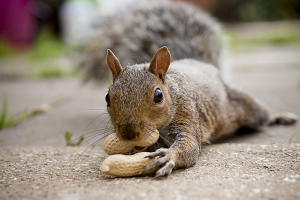Black Children Are An Endangered Species?
Catherine Davis is a woman with a message, and that message is getting harder to ignore. "Black children are an endangered species."
The Director of Minority Outreach for Georgia Right to Life, Davis is taking that message to the public, along with a massive public awareness campaign that has captured national and international attention. Drivers in the metro Atlanta area are seeing billboards that demand attention - and are changing minds.
Her argument is simple and the statistics are irrefutable. She accuses abortion providers in general, and Planned Parenthood in particular, of targeting blacks for abortion. She told The New York Times, "The impact of abortion has become so great that it has begun to impact our fertility rate."
Consider the chilling facts documented in the data. According to the Centers for Disease Control, 57.4% of the abortions performed in Georgia in 2006 were performed on African-American women, but blacks make up only 30% of Georgia's population. Nationwide, the pattern is similarly stacked against black babies - black women have approximately 37% of all abortions each year, while blacks make up only 13% of the national population.
You can see why Catherine Davis' message demands attention. She points also to the fact that, in Georgia, every single abortion clinic is located in areas of black concentration. She argues, quite pointedly, that this amounts to an intentional effort to reduce the black population in the United States.
As she told the Los Angeles Times, "Let me put it this way . . . 18,870,000 black babies have been aborted since Roe v. Wade. If those babies had not been aborted, we would be 59 million strong - over 19% of the population."
She is not only making the argument, however, she is reaching the African-American community with that argument.
As the Los Angeles Times reports, "An increasingly vocal segment of the antiabortion community has embraced the idea that black women are targeted for abortion in an effort to keep the black population down." Similarly, from The New York Times: "Abortion opponents say the number is so high because abortion clinics are deliberately located in black neighborhoods and prey upon black women. The evidence, they say, is everywhere: Planned Parenthood's response to the anti-abortion ad that aired during the Super Bowl featured two black athletes, they note, and several women's clinics offered free services - including abortions - to evacuees after Hurricane Katrina."
"The more I dug into it, the more vast I found that the network was," Catherine Davis told the paper. "And I realized that African-American women just did not know the truth, they did not understand the truth about the abortion industry."
She also has an argument from history. The founder of what became Planned Parenthood was Margaret Sanger, who no one can deny was a proponent of eugenics - the effort to encourage the improvement of the human population by selective breeding. She advocated the forced sterilization of those deemed less fit to reproduce. As the Los Angeles Times noted, "That was often believed to include blacks." Planned Parenthood was also involved in a recent controversy when some Planned Parenthood employees were taped encouraging donations targeted toward the abortion of black babies.
Catherine Davis is not alone in making the argument, either. The Rev. Clenard Childress, Jr. of New Jersey has described the womb as the most dangerous place for a black child. Another black pastor, Rev. Johnny M. Hunter of Fayetteville, North Carolina said, "What's giving [this argument] momentum is blacks are finally figuring out what's going down. . . . The game changes when blacks get involved. And in the pro-life movement, a lot of the groups that have been ignored for years, they're now getting involved."
The case is also being made with force and candor by Alveda King, a niece of Dr. Martin Luther King, Jr: "I know for sure that the black community is being targeted by abortionists for the purpose of ethnic cleansing . . . . How can the dream survive if we are willing to sacrifice the futures of our children?"
The scandal of abortion is not limited to abortion, as these facts and patterns make clear. Catherine Davis and her colleagues are making a difference with this message - and mostly within the black community.
What about the rest of the nation? Is America content to be the land where every baby in the womb is endangered, and where black babies are at even greater risk? That question should haunt every single American.




























